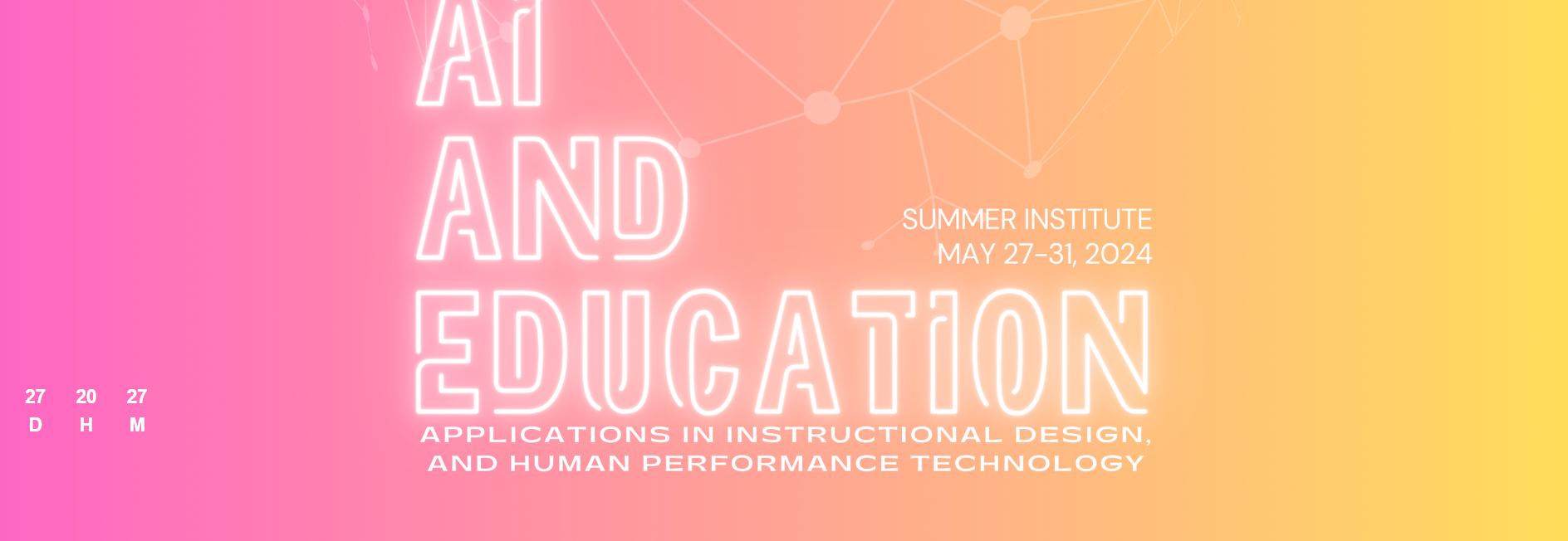AI & education summer institute (2024)
AI and Education: applications in Instructional Design, and Human Performance Technology
May 27 to 30, 2024

About the summer institute
Format
In-person
Location
Concordia University
John Molson School of Business Building (corner of de Maisonneuve and Guy)
Organized by
Saul Carliner & Giuliana Cucinelli
Educational Technology Program
Department of Education
Concordia University
What will you learn?
Following an introductory session, the individual segments of this Symposium explore the impacts of AI on the analysis, design, development, delivery, and implementation of instruction. Each segment has three parts:
- An overview of current uses
- Demonstrations of AI-related applications
- Discussions in which participants consider the impacts of AI on the practice, teaching, and research of instructional design and human performance technology (HPT)
Speakers
- Saul Carliner, Professor, Concordia University
- Julie Corrigan, Concordia University
- Giuliana Cucinelli, Associate Professor, Concordia University
- Stephen Downes, Researcher, National Research Council of Canada
- Margaret Driscoll
- Paolo Granata, Associate Professor, University of Toronto
- Ron Owsten, Research Associate, Contact Nord
- Nupoor Ranade, Assistant Professor, George Mason University
- Shirley Steinberg, Professor, University of Calgary
The impact of AI on instructional design
Although much of the popular “buzz” about Artificial Intelligence (AI) in education right now focuses on ChatGPT and similar generative AI applications that can perform tasks like write research papers and application essays, this limited focus overlooks the overall potential of AI to assist with instruction and its broader possible impacts on the design and delivery of instructional materials. Furthermore, it overlooks decades of background work in the field of educational technology about the possible impacts of AI on the design and delivery of instruction (such as Chen, 2011; Spector, Polson, & Muraida, 1993; Merrill, Li, & Jones, 1990), as well as recent evidence from systematic reviews about the ways AI can affect education (Bond, et al, 2024).
Most significantly, a limited focus on a widely popularized tool overlook the ways that AI-related technologies have increasingly played a role in the work of instructional designers. Before exploring that, first consider what AI is.
AI refers to the ability of machines to mimic the capabilities of humans. These include the ability to: (a) replicate human actions (like touch and speak): sense (such as visual and audio recognition): perform human tasks with information (such as translate it, correct its spelling, and write and review content): make greater inferences about the information (such characterizing audiences and predicting their informational needs); and solve problems and make decisions (such as assessing job applicants).
– (Carliner and Karim, in press)
AI can affect instructional designers in two ways (Carliner and Karim, in press). First, it is increasingly a primary or secondary subject of the instructional materials these designers prepare. Second, AI has the potential to affect the way that instructional designers work.
This Summer Institute focuses on the latter.

